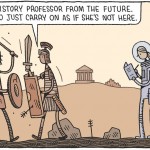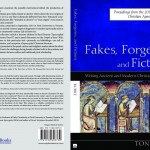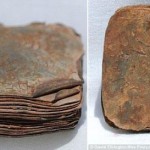Craig Evans wrote a piece for The Bible and Interpretation about the Secret Gospel of Mark, explaining why he is very suspicious and considers it likely that it was in fact fabricated by Morton Smith. Mike Kok, Rod of Alexandria and Tom Verenna also shared views on the subject.
There are questions that it is crucial to keep distinct when discussing the topic of the Secret Gospel of Mark. One is whether Morton Smith forged it. Another is whether someone else might have. And when it comes to the matter of authenticity, the letter of Clement may be authentic but not the Secret Gospel of Mark, or (at least theoretically) vice versa.
Evans’ article is focused primarily on one piece of evidence, namely that Smith was thinking in terms of what the Secret Gospel of Mark contains before he went to Mar Saba and (according to his account) discovered it.
 That might seem like damning evidence, but in fact the connections that Evans sees between secrecy, sexuality and Jesus in Smith’s earlier writings are rather subtle. And to the extent that the evidence for naked baptism comes from other sources, connecting Christian initiation with sexuality was possible for anyone willing to let their imagination run rampant, and did not require the Secret Gospel of Mark. The early church fathers also engaged in polemical accusations of sexual immorality against Gnostics and others.
That might seem like damning evidence, but in fact the connections that Evans sees between secrecy, sexuality and Jesus in Smith’s earlier writings are rather subtle. And to the extent that the evidence for naked baptism comes from other sources, connecting Christian initiation with sexuality was possible for anyone willing to let their imagination run rampant, and did not require the Secret Gospel of Mark. The early church fathers also engaged in polemical accusations of sexual immorality against Gnostics and others.
All this to say that it was possible to think along the lines that Smith seems to have on the basis of other, already well-known sources, and to the extent that Smith interpreted the Secret Gospel of Mark in those terms, one must ask whether that shows that Smith most likely composed the work so as to reflect the views he already held, or interpreted the work he found in line with views he already held.
Evans considers the former to be more likely. And he may be right – I can’t honestly say that I know (I’m not “the one who knows” mentioned in Smith’s dedication!). But as I blogged back in May, there are some strange things if Smith forged Secret Mark. Smith spent years transcribing the text and making notes about it and its interpretation as he worked on his books on the subject. Would it no be overkill for a forger to do that just to lend an air of authenticity, and yet to allegedly put clues about his hoax in the work at the same time, as Stephen Carlson claims? And Allan Pantuck has shown how, rather than precisely reflecting his earlier views, the discovery of the Secret Gospel of Mark actually changed Smith’s view on what the term mysterion might mean. And in some instances, Smith’s interpretation or translation has been challenged, because it reflects his own distinctive understanding of the text but not precisely what the text itself says.
When it comes down to it, there is sufficient uncertainty about enough aspects of the matter of Secret Mark to make it impossible to draw firm conclusions. But whether one should treat it with not just caution but suspicion is not as clear to me as it is to some other scholars whom I respect greatly.
As I shared in the recent Biblical Studies Carnival early edition, D. Miller recently posted a quote from Morton Smith on the topic of forgery. Smith wrote (referring to 1 Maccabees 10): “…This anachronism is one of the many traces of an unusually clumsy forger, who may have had some genuine text to expand, but who expanded it with palpable absurdities.” It seems to me that it may be “palpably absurd” for us to attribute to Smith both long years of note-taking and transcription aimed at throwing the suspicious off the scent of his forgery, and embedding of clues into the text itself so as to allow for its discovery. Presumably if the case for forgery is to be made, then those making it will have to choose one or the other.












